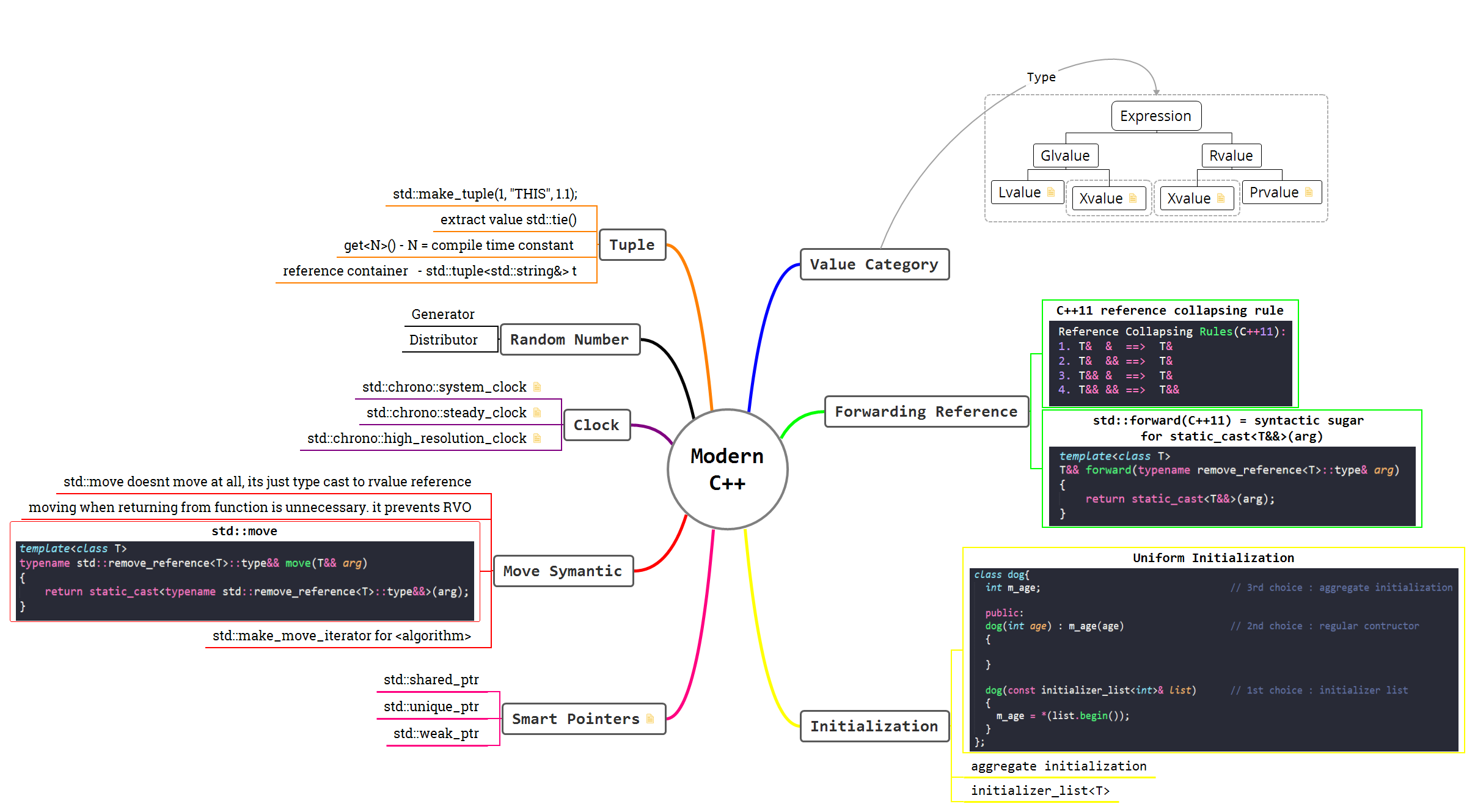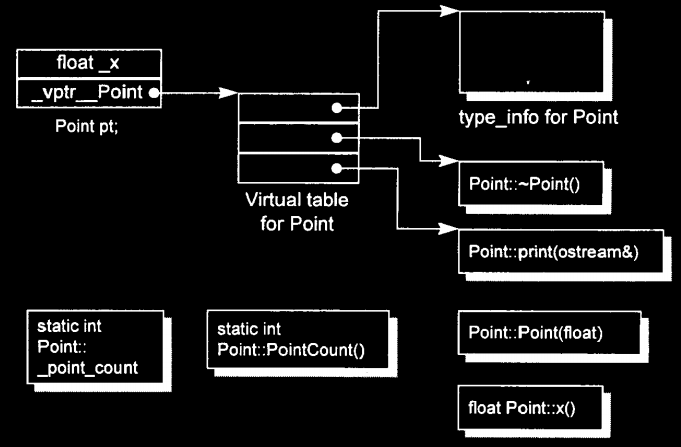In an earlier article, we have seen how move constructor & move assignment operators helped us in creating our own unique_ptr. Here we will use move constructor & assignment operator to implement unsophisticated shared_ptr.
Contents
- In some cases, we have a requirement where a single resource is represented by multiple pointers. We can not accomplish this by
std::unique_ptr. To accomplish this, we can add a new variable to our smart pointer class which keeps track of reference count at the real-time. And when the reference count goes to zero which means nobody is using that resource, we will deallocate that resource. - Unlike
std::unique_ptr, which is designed to singly own and manage a resource,std::shared_ptris meant to solve the case where you need multiple smart pointers co-owning a resource.
template<class T>
class smart_ptr
{
T* m_ptr;
uint32_t *m_refCount;
public:
smart_ptr(T* ptr = nullptr):m_ptr(ptr)
{
if(m_ptr)
m_refCount = new uint32_t(1);
else
m_refCount = nullptr;
}
~smart_ptr()
{
if(m_refCount != nullptr){
(*m_refCount)--;
if((*m_refCount) == 0){
delete m_ptr;
delete m_refCount;
}
}
}
// Copy constructor
smart_ptr(const smart_ptr& a)
{
m_ptr = a.m_ptr;
m_refCount = a.m_refCount;
(*m_refCount)++;
}
// Move constructor
smart_ptr(smart_ptr&& a): m_ptr(a.m_ptr), m_refCount(a.m_refCount)
{
a.m_ptr = nullptr;
a.m_refCount = nullptr;
}
// Copy assignment
smart_ptr& operator=(const smart_ptr& a)
{
m_ptr = a.m_ptr;
m_refCount = a.m_refCount;
(*m_refCount)++;
return *this;
}
// Move assignment
smart_ptr& operator=(smart_ptr&& a)
{
if (&a == this)
return *this;
delete m_ptr;
delete m_refCount;
m_ptr = a.m_ptr;
a.m_ptr = nullptr;
m_refCount = a.m_refCount;
a.m_refCount = nullptr;
return *this;
}
T& operator*() const { return *m_ptr; }
T* operator->() const { return m_ptr; }
};
class Resource
{
public:
Resource() { std::cout << "Resource acquired\n"; }
~Resource() { std::cout << "Resource destroyed\n"; }
};
smart_ptr<Resource> func(smart_ptr<Resource> temp)
{
// Do something
return temp;
}
int main()
{
Resource *res = new Resource;
smart_ptr<Resource> ptr1(res);
{
smart_ptr<Resource> ptr2(ptr1);
auto ptr3 = func(ptr1);
std::cout << "Killing one shared pointer\n";
}
std::cout << "Killing another shared pointer\n";
return 0;
}
- Unlike
std::unique_ptr, which uses a single pointer internally,std::shared_ptruses two pointers internally. One pointer points at the managed resource. The other points at a “control block”, which is a dynamically allocated object that tracks of a bunch of stuff, including how manystd::shared_ptrare pointing at the resource. - Here I have only used a single variable to keep track of references pointing to resource for simplicity. The actual implementation is a bit bulky for more feature & security purpose.
A bit about move constructor & move assignment operator
When does the move constructor & move assignment operator get called?
The move constructor and move assignment are called when those functions have been defined, and the argument for construction or assignment is an r-value. Most typically, this r-value will be a literal or temporary value.
- In most cases, a move constructor and move assignment operator will not be provided by default, unless the class does not have any defined copy constructors, copy assignment, move assignment, or destructors. However, the default move constructor and move assignment do the same thing as the default copy constructor and copy assignment (make copies, not do moves).
l-value reference & r-value reference
- I have already written a separate article for that.
std::move
- In C++11,
std::moveis a standard library function that serves a single purpose — to convert its argument into anr-value. - Once you start using move semantics more regularly, you’ll start to find cases where you want to invoke move semantics, but the objects you have to work with are
l-values, notr-values.
Use case or benefit of std::move
- Consider the following
swap()function as an example:
template<class T>
void swap(T& a, T& b)
{
T tmp { a }; // invokes copy constructor
a = b; // invokes copy assignment
b = tmp; // invokes copy assignment
}
int main()
{
std::string x{ "abc" };
std::string y{ "de" };
swap(x, y);
return 0;
}
- Above
swap()function makes 3 copies. That leads to a lot of excessive string creation and destruction, which is slow. - However, doing copies isn’t necessary here. All we’re really trying to do is swap the values of
aandb, which can be accomplished just as well using 3 moves instead! So if we switch from copy semantics to move semantics, we can make our code more performant.
template<class T>
void swap(T& a, T& b)
{
T tmp { std::move(a) }; // invokes move constructor
a = std::move(b); // invokes move assignment
b = std::move(tmp); // invokes move assignment
}
std::movecan also be useful when sorting an array of elements. Many sorting algorithms (such as selection sort and bubble sort) work by swapping pairs of elements. Here we can use move semantics, which is more efficient.
Do you like it☝️? Get such articles directly into the inbox…!?

